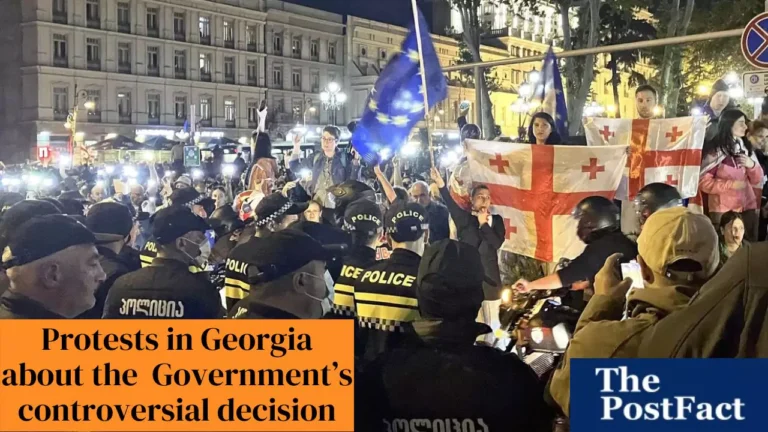Prime Minister Michel Barnier Faces French Government No Confidence Vote
Prime Minister Michel Barnier faces French Government No Confidence Vote Wednesday, in which he could become the shortest-serving prime minister in the country’s modern history. The vote stems from fierce opposition to his proposed budget.
The government pushed a budget through parliament without a vote by using an article in the constitution that is typically used for emergencies. But the move has backfired.
1. President Emmanuel Macron
After Barnier used a constitutional maneuver to bypass parliament and push through a belt-tightening budget bill, leftwing opposition parties and far-right Marine Le Pen’s National Rally both announced plans to table no-confidence motions in his government. If successful, the motions will force Barnier and his cabinet to resign, though not President Macron, who is immune to no-confidence votes.
The French economy is already weakened by an enormous deficit that is projected to exceed 6% of GDP this year, and financial markets have warned that the collapse of the Barnier government could trigger a crisis in Europe’s second largest economy.
The government was appointed by Macron just three months ago and is on borrowed time. If it is voted down, the cabinet will become the shortest-lived in France’s Fifth Republic and would be replaced by a caretaker government.
The political crisis stems from opposition to Barnier’s proposed EUR60 billion (PS49 billion) in tax rises and spending cuts. He is accused of failing to address citizens’ concerns and imposing austerity measures that will lead to economic pain. In a rare show of unity, Le Pen and the left-wing coalition New Popular Front are united in opposition to his budget bill.
2. Far-right leader Marine Le Pen
Since Macron stunned Europe with his call for snap elections this summer, the fractured legislature has left no one group with enough votes to govern securely. That has created an impasse and made Barnier’s government vulnerable to no-confidence motions like the one being tabled on Wednesday.
Le Pen’s National Rally (RN) wants Barnier to further tweak his 2025 budget — including EUR60 billion in spending cuts and tax hikes — and abandon a plan to cut drug reimbursements, among other demands. But Le Pen faces a tough test to win over moderate conservatives who might be concerned she is using the crisis to promote her own political ambitions, said centrist lawmaker Yannick Neuder.
While Barnier has insisted that he will stay on, the looming vote threatens to plunge France into political and economic turmoil, analysts say. The country’s stock markets have tumbled and interest rates have risen in recent weeks amid fears of instability that would compound the nation’s colossal debt.
That would put pressure on Macron, who is promoting French foreign investment in Saudi Arabia on his first trip abroad since taking office, to intervene and appoint a new prime minister. But doing so could risk alienating voters, especially those in the RN who have supported his presidency hopes, experts warn. A no-confidence victory would make Barnier the shortest-serving French premier in more than 60 years.
3. Leftists
The political storm swirling in France ratcheted up a notch on Wednesday as MPs prepared to vote on no-confidence motions against Prime Minister Michel Barnier. The tumult threatens to derail the government’s budget plan and exacerbate the country’s outsize debt problems.
The showdown is a result of last summer’s snap elections, which left the National Assembly, France’s lower house of parliament, bitterly fragmented with no clear majority. President Emmanuel Macron turned to Barnier, a former European commissioner and veteran center-right politician, to navigate the impasse and address the nation’s soaring deficit. He has tried to win support for his budget bill by making concessions, including scrapping an electricity tax hike and adjusting plans for prescription drug reimbursement. But his efforts have largely failed to persuade Ms. Le Pen’s RN party to back the measure.
If the no-confidence votes succeed, the government will be forced to resign and enter caretaker mode until the president appoints a new premier. But the constitution forbids dissolving parliament twice in a year, so any new government would likely be short-lived and unlikely to face a vote of confidence until 2025. Nathalie Oziol, an MP from the hard-left France Unbowed party, told the BBC Newshour that the French public was tired of the “hell of Matignon.” She added that while she believes in many of the policies put forward by Barnier’s government, it is not enough to keep it alive.
4. Barnier
After last summer’s disastrous snap elections, President Emmanuel Macron had to scramble to form a government. He chose the conservative Barnier, a former EU Commissioner and longtime politician, to run the country. The National Assembly is bitterly divided between Macron’s pro-Europe center-right coalition and the far-right, anti-immigrant National Rally and its allies, as well as a left-wing alliance.
Barnier’s plan for a budget of EUR60 billion in combined tax hikes and spending cuts has enraged the opposition, especially Le Pen’s National Rally. He made some concessions but not enough for the RN, which is threatening to bring down the entire government in a no-confidence vote.
In a TV interview, Barnier said it was “possible” his government could survive the no-confidence vote, scheduled to begin Wednesday at 4 p.m. He would have to win over far-right and left-wing lawmakers, whose combined votes will be more than the 289 needed to topple the government.
But if the no-confidence motion succeeds, it will put Barnier in a position of having to resign from his role as prime minister and leave the budget bill in limbo. A successful French Government noconfidence vote would also mean a new parliamentary election must be held in July, because France’s constitution does not allow for the same parliament to be dissolved twice within one year. If it does pass, Barnier would become the first French leader to be forced out by no-confidence since 1962. The lifespan of a French government has never been shorter than it would be after a no-confidence vote.







